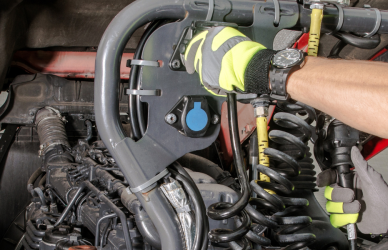The American Transportation Research Institute (ATRI) has published a report analyzing the causes and preventive measures regarding predatory practices in heavy-duty towing. The objective is to foster a more positive and constructive relationship between the towing and trucking industries.
Among the forms of predatory towing identified, 82.7% of motor carriers reported encountering excessive rates, while 81.8% experienced unwarranted additional service charges. Beyond these primary concerns, carriers faced various other issues, such as delays in truck release or access, cargo release, unwarranted truck seizures, and instances where tows were falsely reported as consensual.
A detailed examination of towing records related to crashes revealed that 29.8% of invoices involved either excessive rates or unjustified additional charges. The primary contributors to this figure included miscellaneous service charges (present in 8% of invoices), administrative fees (present in 6.5% of invoices), and equipment rates (present in 6.3% of invoices).
The existing regulatory mandates, consisting of municipal, county, and state regulations, are often inadequate in curbing these towing practices. The report addresses this issue by presenting an online collection of state towing regulations, along with highlighting key areas for enhancing the scope and application of regulations to close loopholes.
Further insights provided through analyses and interviews with legal experts offer strategies for motor carriers to safeguard against, identify, or address predatory towing. This includes guidance on reviewing invoices for signs of predatory billing and collecting data to dispute towing companies’ accounts of incidents when necessary.
“Predatory towing is a costly issue for motor carriers as well as compliant towing companies, and it has been overlooked for too long,” said Shawn R. Brown, Cargo Transporters’ vice president of safety. “With reliable data analysis and a thorough regulatory review, ATRI’s report sheds light on the sources of the problem and paths forward for addressing it by both regulators and trucking fleets.”
The complete report is accessible on ATRI’s website here.
Source: The Trucker











